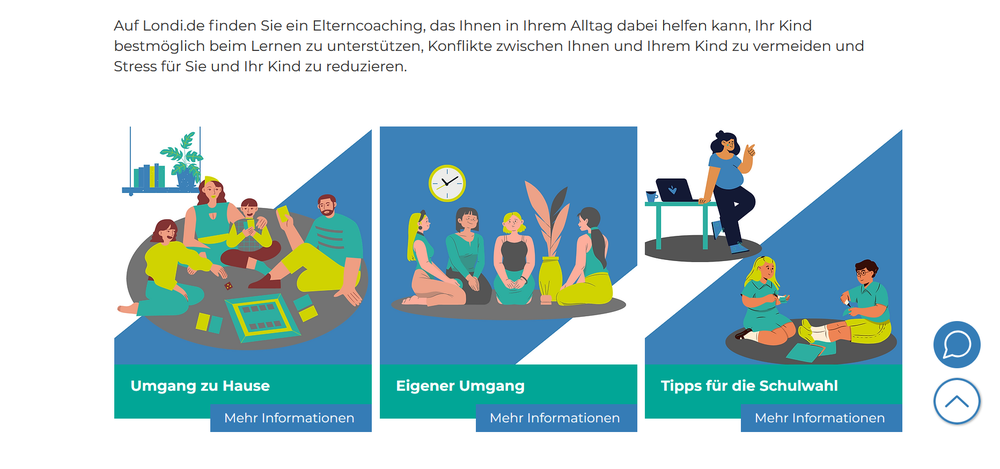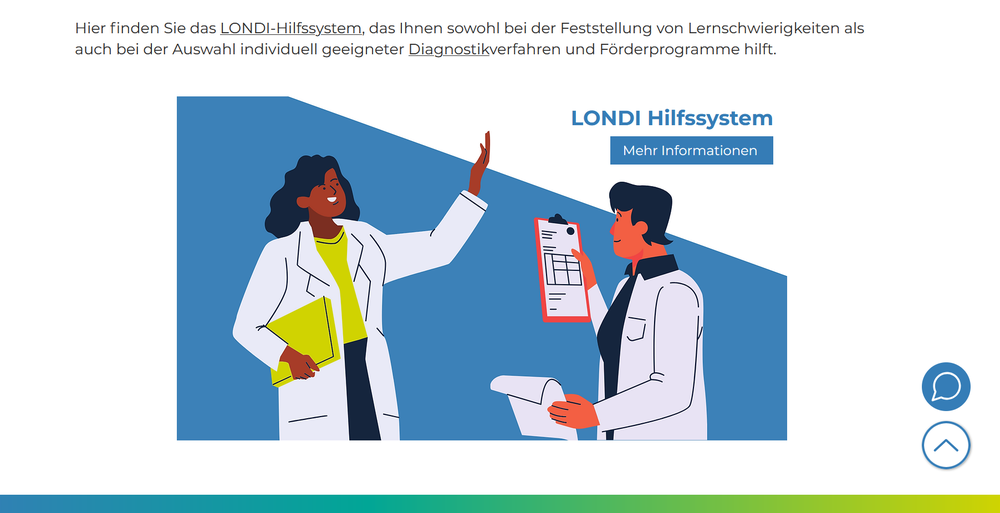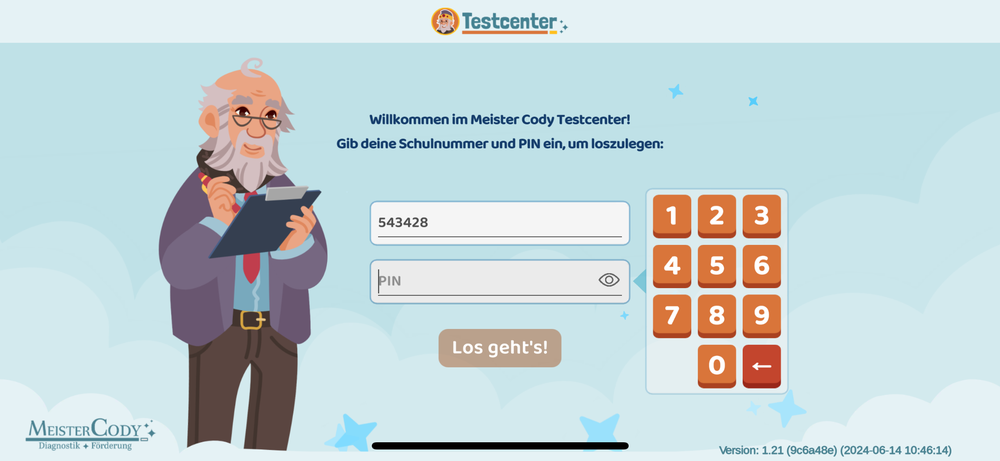The aim of the LONDI project was to develop an evidence-based, practical and widely accessible online platform for an optimal diagnosis and support of children with persistent learning difficulties or a circumscribed developmental disorder of school skills (UESF).
A Platform for Practitioners in Schools, Therapy and Youth Services – and also for Parents
The research findings from the previous project were incorporated into the development of the LONDI online platform. In collaboration with the Department of Child and Adolescent Psychiatry, Psychosomatics and Psychotherapy at Ludwig Maximilians University in Munich, we addressed the crucial question of how to provide evidence-based information and practical decision-making aids for diagnosis and support to different user groups.
On the one hand, professional users such as teachers, learning therapists, school psychologists and youth workers needed to be considered and given access to an information and support system. This should be used to support the diagnosis of individual learning difficulties and to identify the best support options according to the current state of art in research. On the other hand, the parents of the children concerned should also be involved in the platform. The aim was to create a dedicated area where they could find information on learning difficulties, their detection, diagnosis and treatment as well as help on how to best support their child at home.
Three Building Blocks Define the Online Platform: Information Portal, Assistance System and Screening
In developing the LONDI online platform, we worked closely with German and mathematics education specialists as well as user groups. These included school psychologists, local youth services, learning therapists and parents with affected children. In the end, the platform was set up with three main components:
Creation of the LONDI information portal
The LONDI online platform was designed to help professionals and parents to better support children with learning difficulties in reading, spelling and/or arithmetic. An important part of the platform is an information portal that provides reliable information on learning difficulties and developmental disorders. It contains general information on the diagnosis and support of learning difficulties, as well as specific recommendations for the various user groups.

LONDI Assistance System for Diagnosis & Support
In order to develop the LONDI support system, we carried out a thorough search for diagnostic test procedures and support programmes in German-speaking countries. We considered procedures for the academic areas of reading, spelling and arithmetic as well as programmes to support children with learning difficulties in different age groups. A scientific evaluation based on international quality assurance systems was carried out for each diagnostic tool and support programme. We identified the diagnostic and support areas covered and the conditions under which they are particularly helpful for children with specific learning difficulties. In addition, we developed a generic competency level model that enables selection of appropriate support programmes based on the diagnosis.

LONDI Screening
An online screening for primary school children was developed for LONDI at the University of Würzburg, Germany, to provide sound information on whether a child has particular learning difficulties and in which areas. The screening is designed to be administered during a school lesson and covers the key school skills of reading, spelling and arithmetic. The individual components of the screening were developed step by step on the basis of current research literature and were scientifically tested in eight empirical studies. We saw that the newly developed app-based test can reliably identify children with learning difficulties in reading, spelling and arithmetic. The LONDI screening was implemented from 2018 to 2021 at the Department of Educational Psychology at the University of Würzburg under the leadership of Prof. Dr. Tobias Richter, Prof. Dr. Wolfgang Lenhard and PD Dr. Peter Marx as well as project team member Dr. Darius Endlich.

- Funding period: LONDI 1 2017-2021
- Transfer Project
- Cooperation project involving DIPF | Leibniz Institute for Research and Information in Education and LMU Klinikum, Clinic for Child and Adolescent Psychiatry, Psychosomatics and Psychotherapy (LMU), joint responsibility of Prof. Dr. Marcus Hasselhorn (DIPF) and Prof. Dr. Gerd Schulte-Körne (LMU).
- Participants: University of Würzburg, University of Hildesheim, DRK Clinics Berlin, University of Potsdam